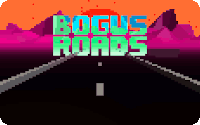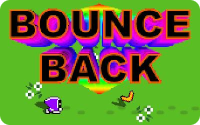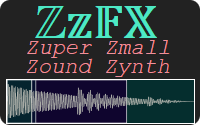To celebrate the first year of fxhash, artists were invited to create special collections of 365 edition generative works. I decided to try a crazy idea I’ve had for a while and release a project that uses only emojis to create tweetable artwork. Since there is no image used, the art can be copied like normal text for display on social media! I chose this simple output as the preview.
🟥🟥🟥🟥🟥
🟥🔵🔵🔵🟥
🟥🔵🟡🔵🟥
🟥🔵🔵🔵🟥
🟥🟥🟥🟥🟥
Most results are designed to fit in a 280 character tweet, except for rare extra large variants. Five different generative algorithms possible, each with their own set of parameters. Several other features round out the set including shadow, color count, border, background options.
Here is a mosaic showing every Tilemoji, thank you to everyone that got one! Keep reading for some more info about how the project works…
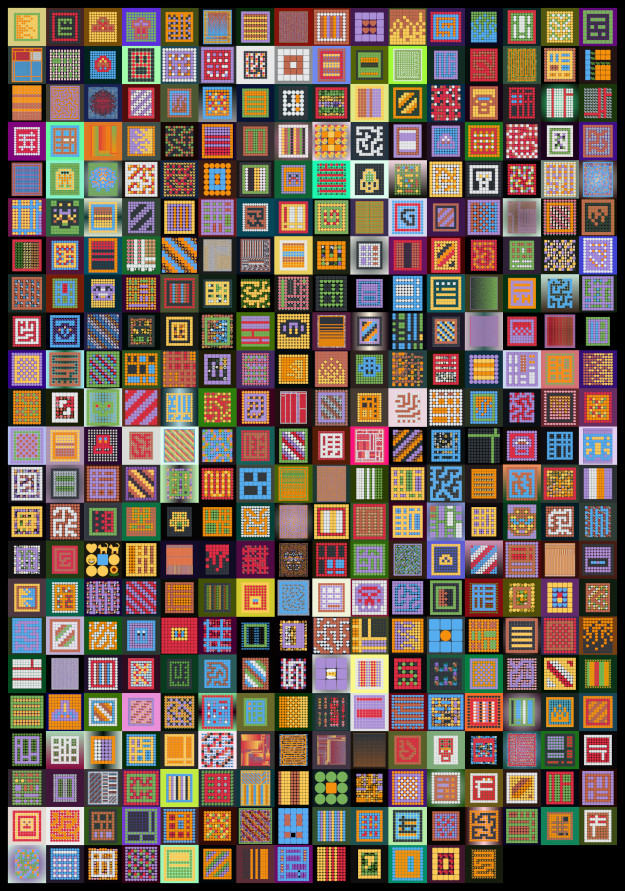
Background
Tilemoji is a project that has been in the works for a long time. I first dabbled with the idea as an hidden feature in my work Divide by Circle Unsquared. When the debug console is viewed (F12 in most browsers) a sprite is shown that was generated with the same hash as the main work. I was thinking of this as kind of like adding personal signature to the work.
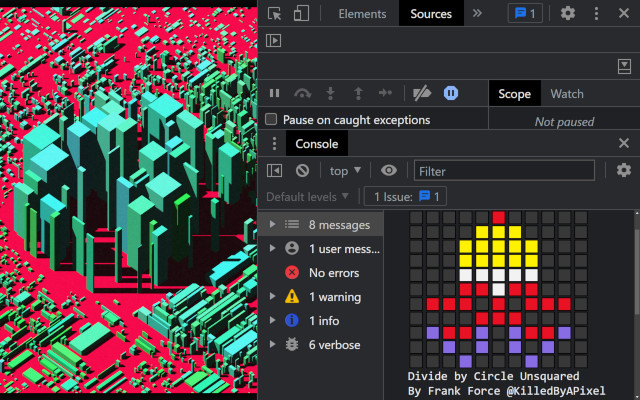
I continued experimenting with this secret feature in several other projects including Antiflow, a collaboration with Ryan Bell. This work comes with a second mini tweetable abstract. There was also a small chance of special emojis included for extra fun.

I also released a few dweets using this concept also including Sierpinski Tweet Art Generator and Throw Sprite.
Algorithms
There are 5 different generative algorithms used in this project that I chose because they would work well with such a low resolution. They are subdivision, maze, stripes, fade, and sprites generation. Some of these are also callbacks to my earlier projects like Divide by Circle and Zpritez. Larger results can also have a combination of styles.

Divide preforms a spatial subdivision algorithm and fills in each cell with a color. This style is inspired by the work of Piet Mondrian and used in many of my works like Astronomic Comics. Tilemoji #148 has a shadow behind the emojis that is used in about half of the results.

Maze generates a branching maze to fill up the space like a mini dungeon generators. There is a chance of a degenerate maze that only turn in one direction and remind me of dragons. I think #23 is an interesting result because the white circles become nearly invisible in front of the background.
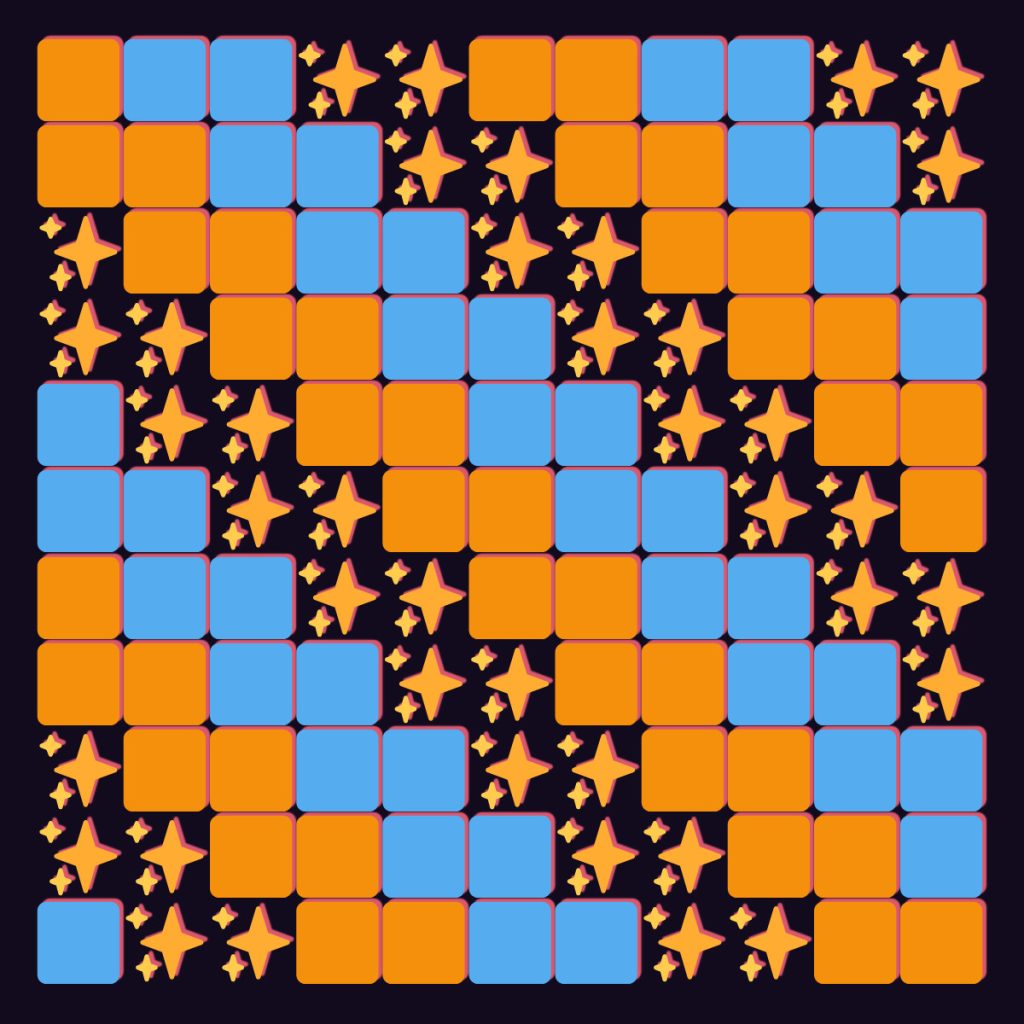
Stripe creates a repeating multicolor stripe pattern that can be horizontal, vertical, or on a 45 degree angle. In this example of #101, one of the stripes uses the sparkle emoji.
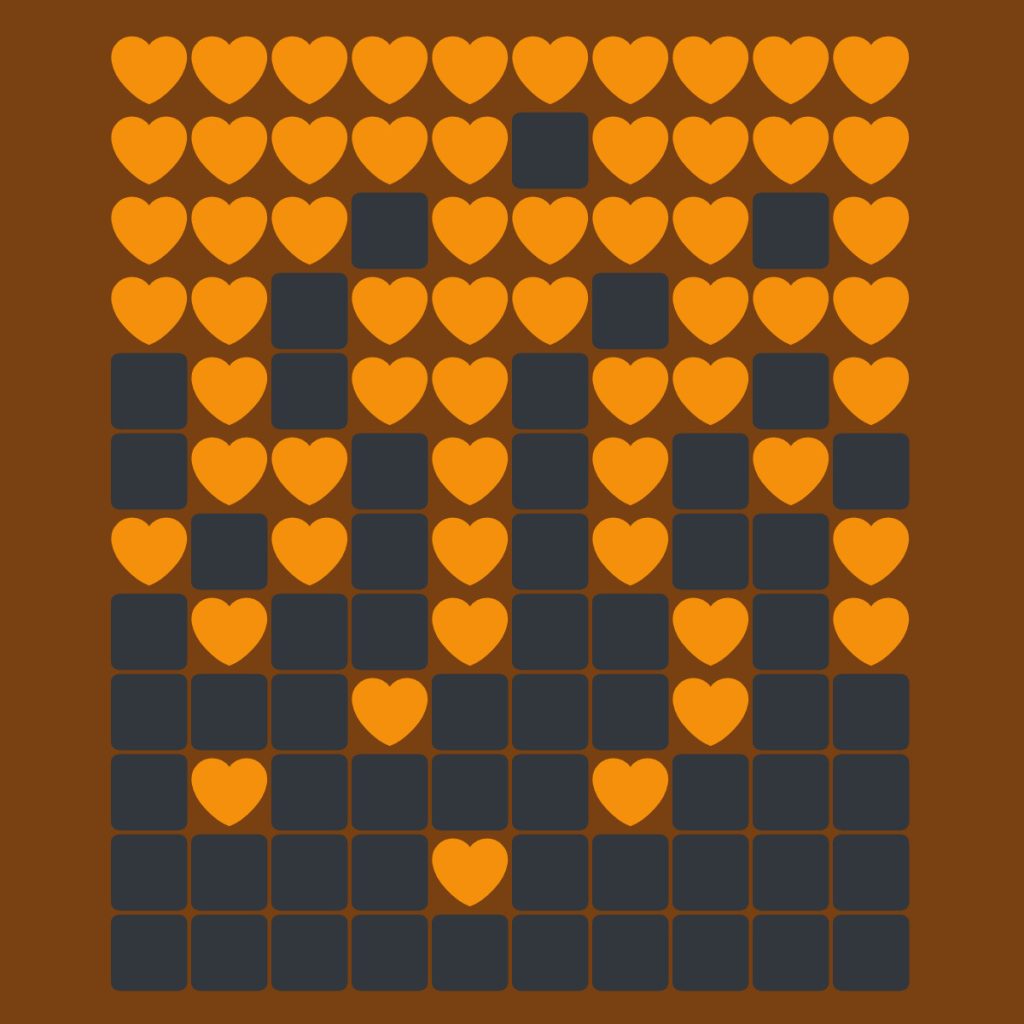
Fade creates a gradient effect between two different colors. Depending on random parameters chosen for the algorithm it can result in linear stripes or staggered dots. The result is often symmetric but sometimes not like in the case of #272 with orange heart emojis.

The rarest style is a sprite generator that produces symmetric low resolution sprites, similar to the one used in my early fxhash project Zpritez. The results often produce recognizable forms like the skull in #77.
Sizes
The majority of the results produce a result that fits in a 280 character tweet so it can be shared on social media. However there is a small chance of producing a much larger result.
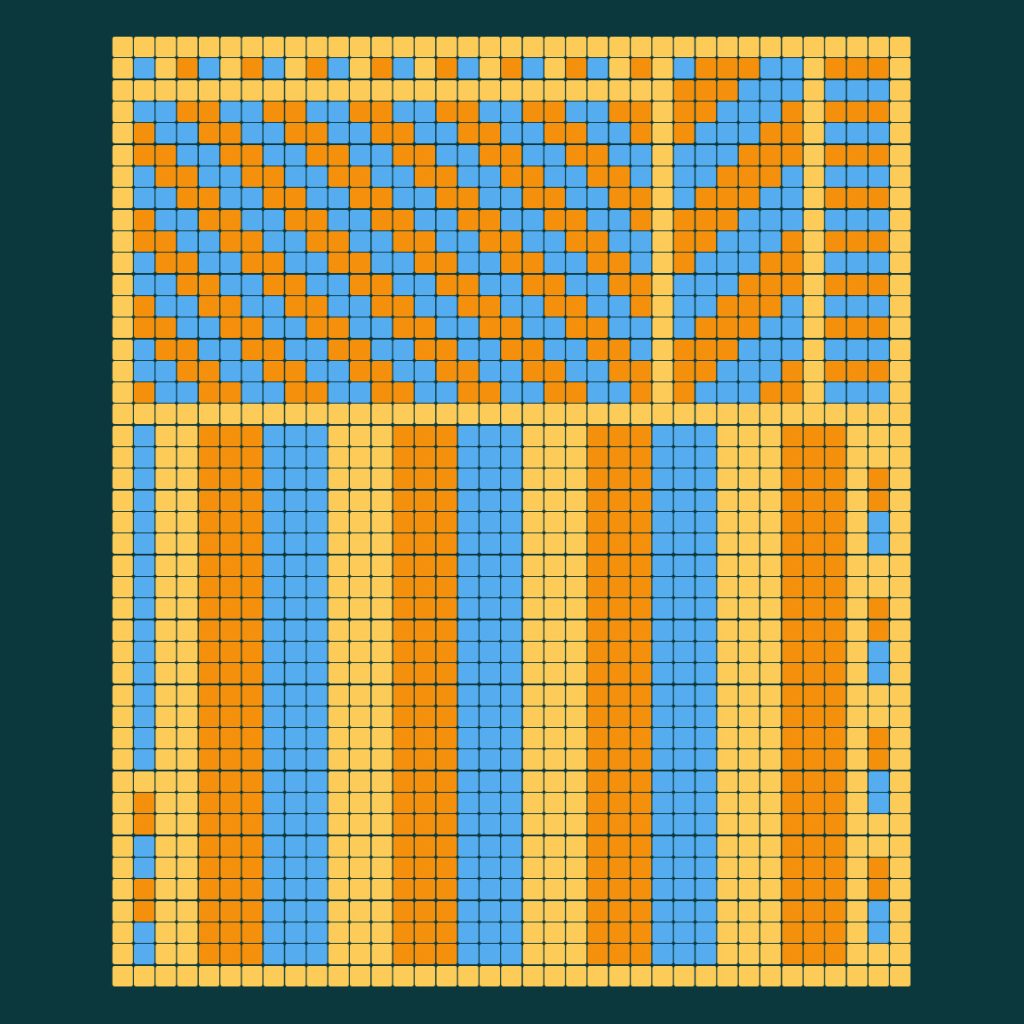
Many of the larger results use a combination of algorithms, using the subdivision algorithm to break up the space and fill each division with one of the other algorithms like #327.
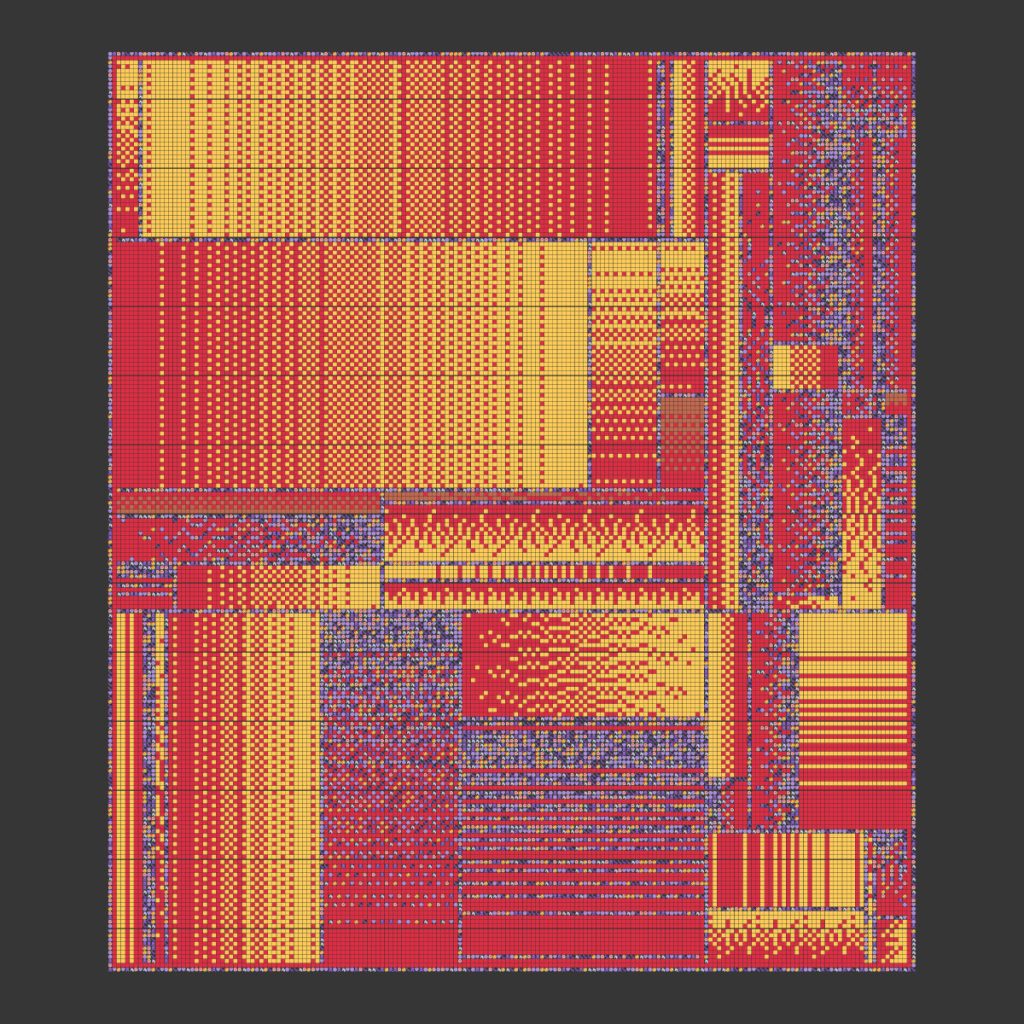
Some results are even larger, so big that I was worried that the website might have a problem rendering these. The tech seems to have worked out incredibly well though! Tilemoji #311 is one of the biggest results and a good demonstration of the fade algorithm.
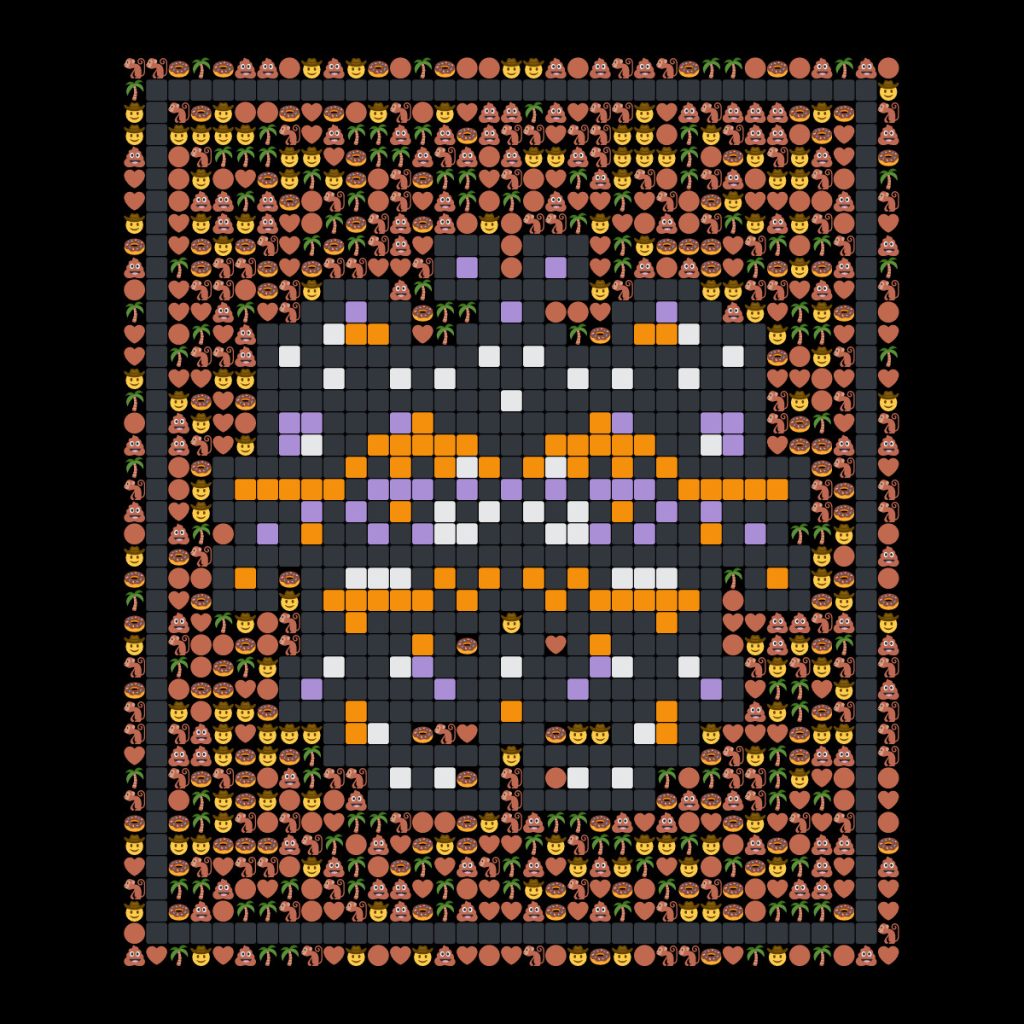
There was a very small chance of a large result that uses the sprite algorithm. In the entire set there were only 3 results produced like #232.
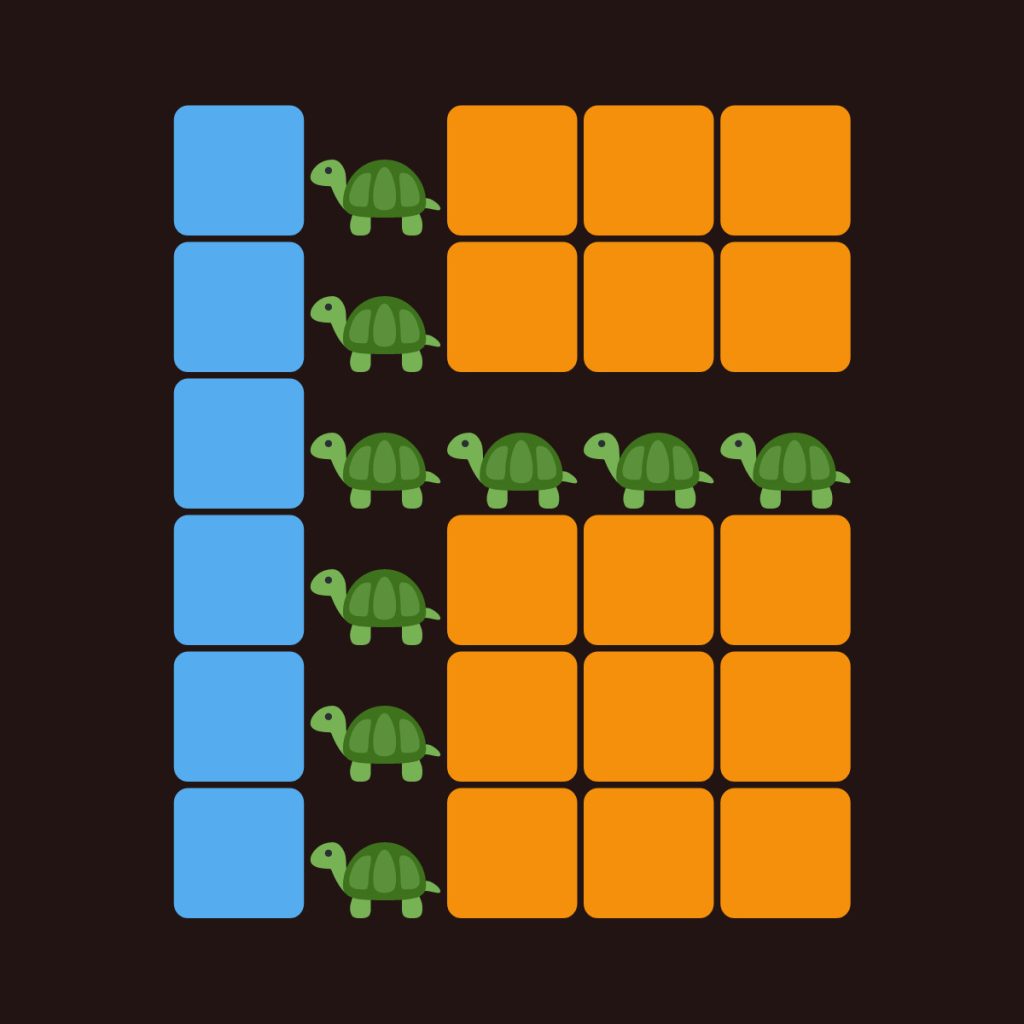
Just as there were some larger results, there was also a chance for tiny results. These all have their style set to Minimal because they are too small to represent an algorithm.
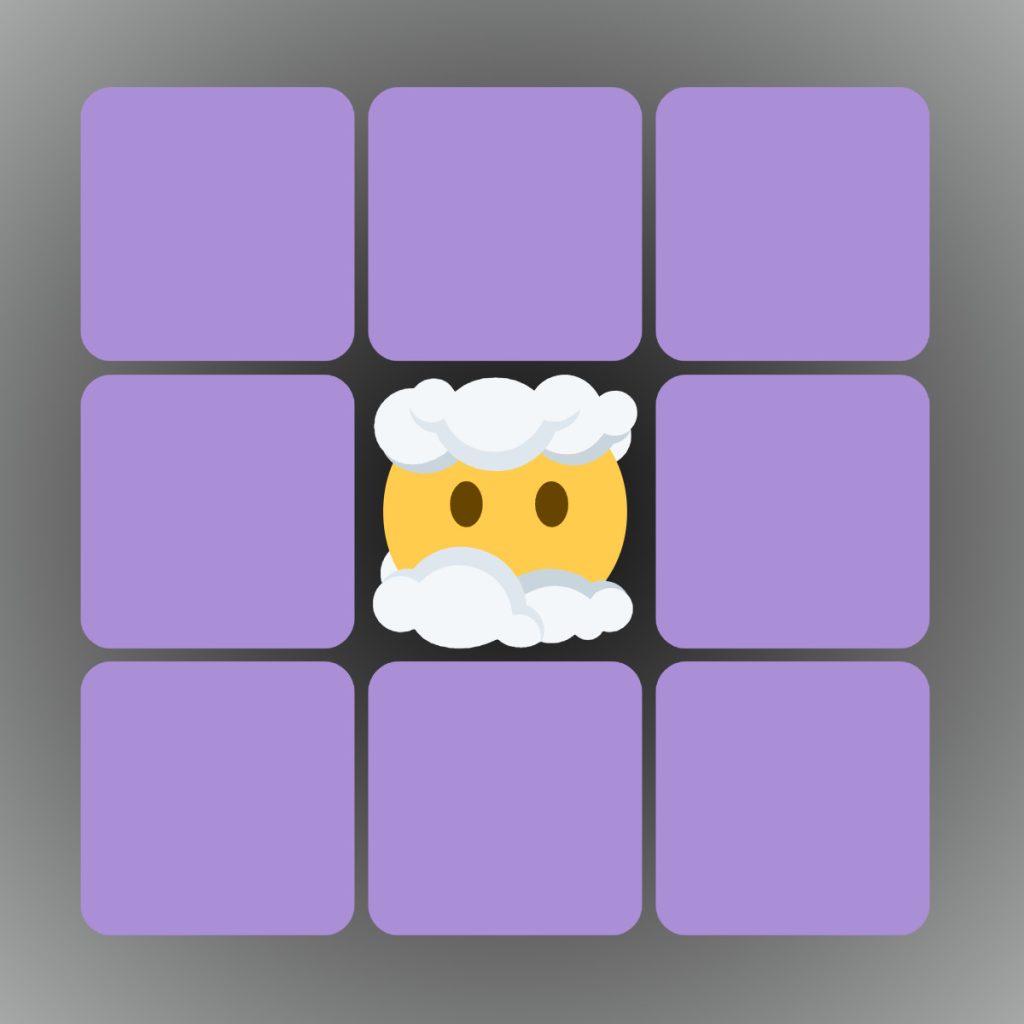
The most rare size is micro which is 4×4 or less in size, there are only 5 like this in the entire set! This one also has a gradient background, which are more rare then single colors.
Emojis
For all the emojis I used the open source font Twemoji font. This was necessary to produce consistent results across a range of possible viewing devices. Also, this is the same font used by twitter and similar to some other social media websites.
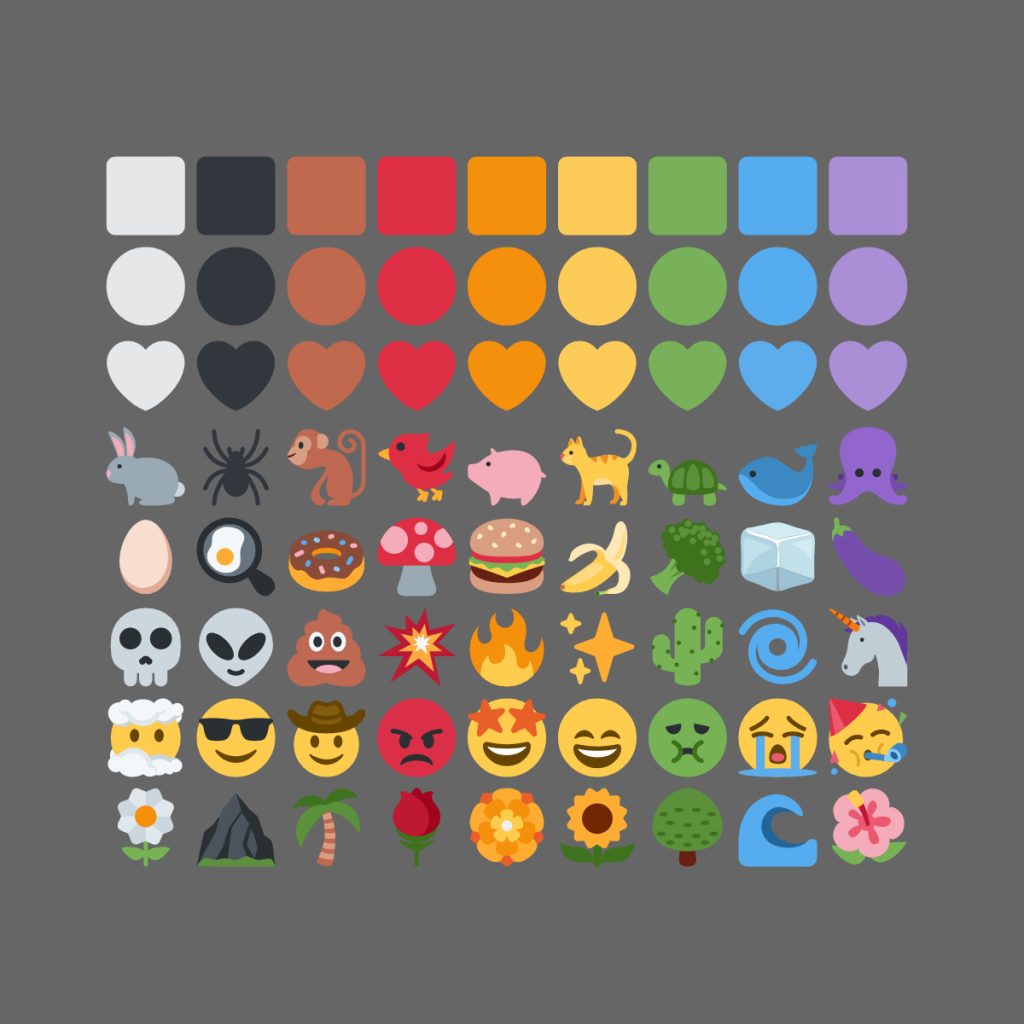
I separated the emojis into 10 categories, each with a rainbow of colors. The categories in order of rarity are Circle, Square, Heart, Food, Pop, Animal, Face, and Nature. There is also a chance of using a mixture of emojis from different categories.
Wrap Up
Thanks for reading about this crazy project, I had a lot of fun working on it. The project is minted out now and all the proceeds were donated to Save Pakistan a crypto fund for Pakistan flood relief. You can still view the full gallery on fxhash or pick one up on secondary.
I will leave you with my first post about the project on social media. Follow me on Twitter for latest updates for everything I do. Have a great week!




